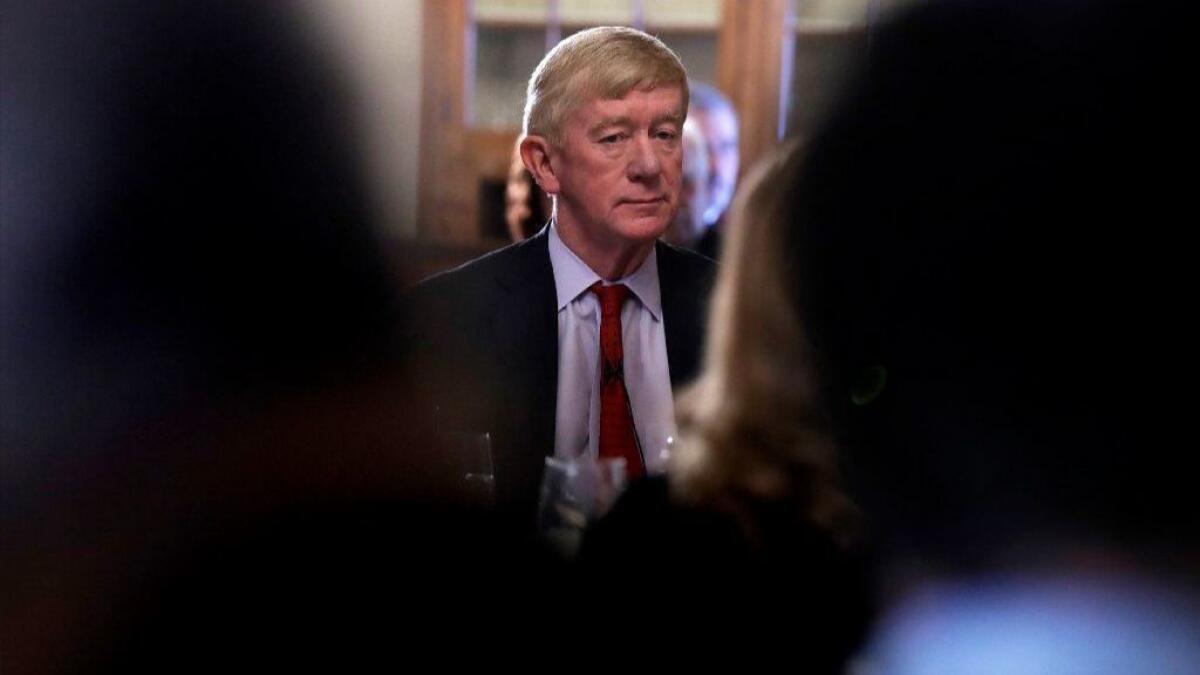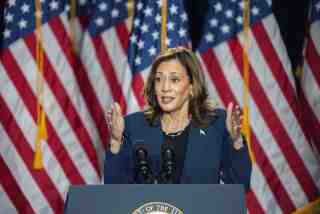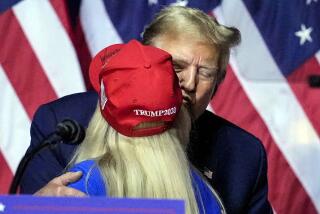Column: Trump’s Republican challengers: In it, but maybe not to win it

Reporting from Washington — It’s official: At least one bold but quixotic Republican will run against President Trump in next year’s GOP presidential primaries.
Former Massachusetts Gov. William F. Weld says he’s running, no matter how bad his chances look. Maryland Gov. Larry Hogan may jump in. Former Ohio Gov. John Kasich could be available as well.
None appears likely to topple the president — not under current circumstances, at least. Trump is wildly popular among GOP voters, with approval ratings above 80%. If history is a guide, he shouldn’t face a serious challenge.
So why would anyone run?
Simple. Trump may be more vulnerable a year from now. If special counsel Robert S. Mueller III turns in a damning report, or if the economy tips into recession, the president’s hold could weaken.
Secondly, even some Trump supporters say they’d like a choice. In an ABC News/Washington Post poll last month, almost one-third of Republican voters said they hope the GOP nominates someone else. That suggests an opening, if not a clear path.
Still, challenging a president requires not just poll numbers, but passion — usually stemming from serious division in the president’s party, plus the challenger’s conviction that the incumbent is dangerously wrong for the country.
That’s what drove Eugene McCarthy to challenge President Lyndon B. Johnson in 1968; Ronald Reagan to challenge Gerald R. Ford in 1976; Edward M. Kennedy to challenge Jimmy Carter in 1980; and Patrick J. Buchanan to challenge George H.W. Bush in 1992.
None of those challengers won the nomination then. But none of those incumbents won a second term, either.
It might seem odd to accuse Weld, Hogan and Kasich of passion; all three are relatively moderate in tone and policy. As governors, they won support from Democratic voters and struck deals across the aisle.
But that’s what they’re passionate about. They all miss the days when the Republican Party tried to make itself a bigger tent, championed compromise and sound management, and didn’t focus only on mobilizing an increasingly conservative base.
“The Republican Party has been hijacked,” Kasich said recently in New Hampshire, home to the first-in-the-nation primary. “When you lose young people, minorities, women, college-educated people, as a party, you’ve got a problem.”
“I don’t like the tone that the president uses,” Hogan said in a TV interview last week. “There are times when he acts irrationally and does things in a way that aren’t great for the Republican Party and for the country.”
“We cannot sit passively as our precious democracy slips quietly into darkness,” Weld said at a breakfast in New Hampshire on Feb. 15.
Weld seems least likely to hinder Trump. He’s not much of a Republican: He endorsed Barack Obama for president in 2008, and ran for vice president as a Libertarian in 2016. Plus, he supports abortion rights and gun control.
He’s probably not the Republican Party’s future; he’s barely part of its recent past.
But Weld is well-known in New Hampshire, where Republicans are more moderate than elsewhere, and where independents can vote in any party’s primary. Some might want to rebuke Trump by casting a defiant vote for Weld.
Weld has a steep hill to climb; a recent poll of New Hampshire Republicans found him trailing Trump 82% to 18%. But his campaign could show other candidates whether Trump is vulnerable.
If so, Hogan might prove a tougher competitor. He’s more conservative than Weld, but he won reelection last year in Maryland, a solidly Democratic state, thanks to good fiscal management and a gritty populist touch. He’s criticized Trump’s immigration policy as divisive and his declaration of a state of emergency on the southern border as unwarranted.
He also has a rebellious lineage. His father, Larry Hogan Sr., was the first member of the House Judiciary Committee to call for Richard M. Nixon’s impeachment in 1974. Hogan recalled the episode in his inaugural address last month, saying: “No man, not even the president of the United States, is above the law.”
Kasich could be the most formidable of the three, if only because he has the most national experience and is the best known. He ran for the GOP nomination in 2016 and finished third in the delegate count, behind Trump and Sen. Ted Cruz of Texas.
Kasich is a fiscal conservative, too, but he’s broken with party leaders on several issues, including climate change. In 2016, he refused to endorse Trump in the general election and still speaks of the president with barely-concealed distaste.
Bill Kristol, a prominent Trump critic in the GOP, has been urging would-be challengers to emulate Reagan’s challenge to Ford in 1976.
“Reagan lost, but he planted a flag and four years later he was the nominee,” Kristol told me. “Running a good race and establishing yourself as a leader of the party is not a kamikaze mission.”
I hope they all run. Not because I think a primary challenge would doom Trump; no one knows that.
But democracy is about choices, and many Republican voters say they want a choice — even if they’re still likely to vote for Trump in the general election.
If the three challengers run, it will be a triumph of passion over calculation. They will face a storm of Trump-driven nastiness because they think their party has lost its way. There’s patriotism in that — even, perhaps, nobility. Greater love hath no politician.
More to Read
Get the L.A. Times Politics newsletter
Deeply reported insights into legislation, politics and policy from Sacramento, Washington and beyond. In your inbox three times per week.
You may occasionally receive promotional content from the Los Angeles Times.










